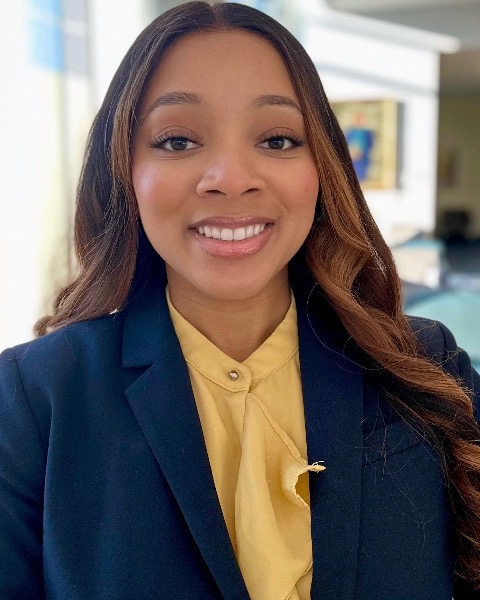Socioeconomic
Empowering Future Spine Surgeons: Impact of an In-Person Symposium for Underrepresented Students in Surgery
Friday, February 21, 2025
7:00 AM - 2:00 AM EST

Antoinette J. Charles, MPH
Medical Student
Duke University School of Medicine
Duke University School of Medicine
Durham, NC, US
Presenting Author(s)
Introduction: The Future Leaders in Surgery Symposium for Underrepresented Students (FLXSUS) is designed to provide students from diverse backgrounds with exposure to surgical subspecialties. By introducing students to research, educating them about surgical careers, and connecting them with diverse mentors, we aim to address the underrepresentation of minorities in spine surgery. Initially launched as a virtual series, the symposium was later expanded to include an in-person event featuring spine surgery. This study assesses the impact of the in-person symposium.
Methods: A diverse team of medical students, residents, and faculty from multiple academic institutions organized the symposium. The event featured a medical school admissions panel, a career panel, a networking luncheon, and interactive activity sessions—including a spine surgery station with workshops on laminectomy, lateral mass screw placement, and pedicle screw techniques. Pre- and post-symposium surveys were administered to assess changes in participants' perceptions, technical skills, and career interests.
Results: Of the 57 undergraduate students accepted, 52 participated in the event. All participants had previously attended at least one virtual symposium in Neurosurgery, Orthopaedic Surgery, or Plastic Surgery. The majority of attendees were female (71%, n=37), with 52% identifying as Black or African American (n=27) and 29% as Hispanic or Latino (n=15). The symposium received an average rating of 9.6/10. One participant noted, "I really enjoyed the experience and learned how to do sutures and drill spines," while another shared, "My greatest takeaway is a greater interest in spine surgery." A total of 26 participants completed both pre- and post-symposium surveys. Their responses revealed a significant positive shift in perceptions of surgery as a viable career for minorities and women (p=0.003), strengthened mentorship connections (p=0.023), increased confidence in technical skills (p=0.001), and greater belief in their ability to pursue a surgical career (p=0.009).
Conclusion : The FLXSUS symposium significantly enhanced participants' confidence in surgical skills and expanded mentorship networks for underrepresented minorities and women. This model demonstrates its effectiveness in preparing diverse students for surgical careers and shows promise as a scalable framework for inspiring and recruiting the next generation of spine surgeons.
Methods: A diverse team of medical students, residents, and faculty from multiple academic institutions organized the symposium. The event featured a medical school admissions panel, a career panel, a networking luncheon, and interactive activity sessions—including a spine surgery station with workshops on laminectomy, lateral mass screw placement, and pedicle screw techniques. Pre- and post-symposium surveys were administered to assess changes in participants' perceptions, technical skills, and career interests.
Results: Of the 57 undergraduate students accepted, 52 participated in the event. All participants had previously attended at least one virtual symposium in Neurosurgery, Orthopaedic Surgery, or Plastic Surgery. The majority of attendees were female (71%, n=37), with 52% identifying as Black or African American (n=27) and 29% as Hispanic or Latino (n=15). The symposium received an average rating of 9.6/10. One participant noted, "I really enjoyed the experience and learned how to do sutures and drill spines," while another shared, "My greatest takeaway is a greater interest in spine surgery." A total of 26 participants completed both pre- and post-symposium surveys. Their responses revealed a significant positive shift in perceptions of surgery as a viable career for minorities and women (p=0.003), strengthened mentorship connections (p=0.023), increased confidence in technical skills (p=0.001), and greater belief in their ability to pursue a surgical career (p=0.009).
Conclusion : The FLXSUS symposium significantly enhanced participants' confidence in surgical skills and expanded mentorship networks for underrepresented minorities and women. This model demonstrates its effectiveness in preparing diverse students for surgical careers and shows promise as a scalable framework for inspiring and recruiting the next generation of spine surgeons.

.jpg)